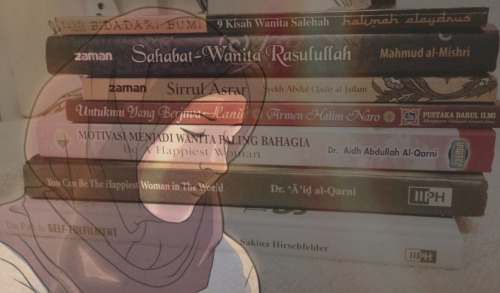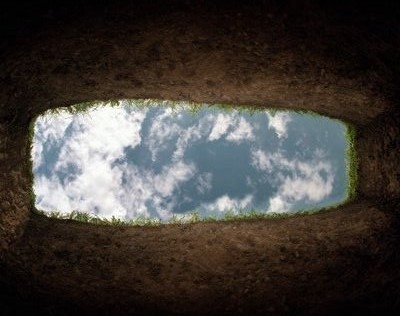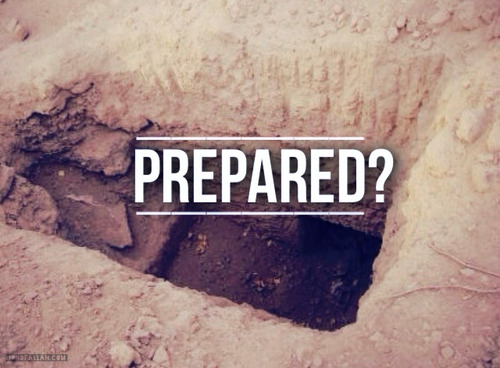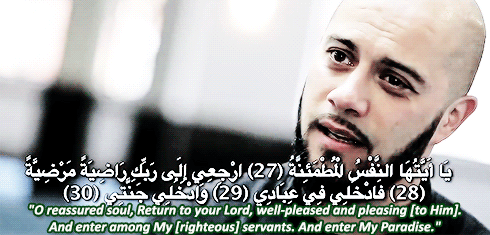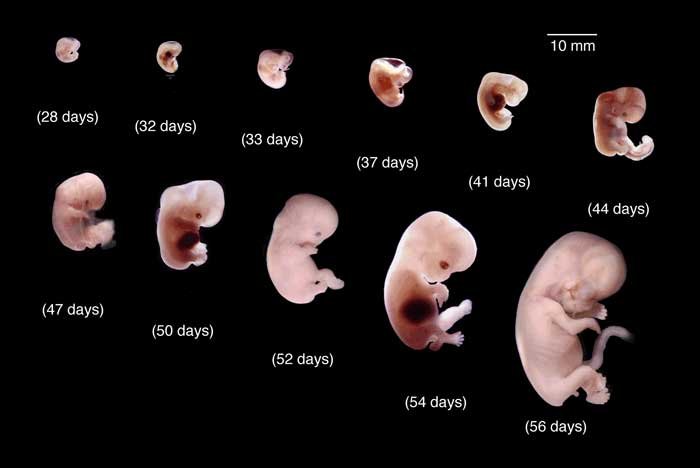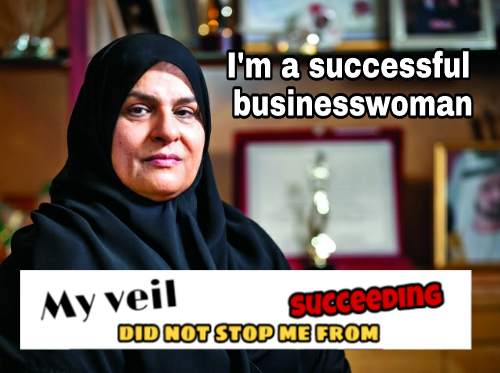It's been a long time since I last spread some knowledge to my sahabah. Sorry for not updating this blog because life seems to get busy and harder. But, no worries. Instagram social media is the simplest way I can update frequently. So, you guys can have a read and may it beneficial for you instead of waiting my thoughts and stories in this blog. Surely, it will takes a long time for me to update maybe. So yeah. Without wasting my time, today I want to share some brilliant thoughts from a great guy who actually describes what happening to me lately and for the future, you and me. ^_^
Seize the opportunity of five things before you lose these five; your youth before your old age, your health before your illness, your wealth before your poverty,your leisure before your occupation and your life before your death.- Prophet Muhammad S.A.WThis hadith is when the Prophet S.A.W said to a man while he was advising him. The first word, ightanam comes from same root signifies sheep-ghanam. Sheep, in Arabic, means ghanam, and ighhtanam is from the same root that also signifies sheep. What exactly is the meaning of ightanam? Ightanam is used to indicate any good that can be obtained without much effort. Just like sheep, they can easily be caught if they go astray. This is why the war booty that is found on the battlefield after the army has fled is called ghanimah. It is easy to take, just like the sheep. You can grasp it without much effort. Ghanimah, ightanam, and ghanam are all from the same root.
So it is as if the Prophet S.A.W. is pointing out that these five matters are easy to obtain. They are easy to prey on and catch, and very simple to benefit from. That is because they are treasures that everyone possesses but few people appreciate.
So, what are these five things?
- Take Advantage of your youth before your old age
The Prophet S.A.W. started off and said shabbab, a youth, "Take advatange of your youth before your haram." And the word haram means old age, maybe even senility. It is an age in which the person does not have the power or mental faculties that he had while he was a youth.
Youthfulness is a time when a person is the most energetic, when he lays out the foundations for his future, and when he plans his life. So, the Prophet S.A.W. said to take advantage of this time before the time comes when you do not have that enthusiasm, when you do not have that zeal, or that outlook. The enthusiasm and energy that you have been blessed with will never again be given to you after this age. Therefore, the Prophet S.A.W. said to seize the moment and take advantage of it. A person should exercise this energy for the sake of Allah by procuring knowledge of Allah, obtaining halal sustenance, and worshiping Allah through acts that he might not be able to do later on in life.
Youth here does not mean the western concept of youth that youthfulness finishes when someone is eighteen or nineteen years old. In the Islamic Syari'ah, a man's life has been divided into a number of sectors or stages. Shabbab or shab, according to the strongest opinion, means before reaching the age of forty. This is because forty is the prime of life, when mental and physical capabilities have reached a peak, and after that they start to go down.
Th Prophet S.A.W. said:
"Seven are the people that will sheltered on the Day of Judgement, the day in which there is no shade except the shade of Allah S.W.T."One of the seven people, the Prophet S.A.W. mentioned was a youth who grew up in the worship of Allah S.W.T. Remember, the youth is up to forty. So, this young person, whether he is twenty or thirty or right before reaching the age of forty, he has grown up and has been raised or has raised himself busy in the worship of Allah S.W.T.
Likewise, the Prophet S.A.W. said in an authentic hadith that Allah S.W.T. is pleased and amazed at the youth who does not have any evil inclinations. This means he does not turn left or right to paths of Shaytaan. Allah loves this person and is amazed at him because in general it is the youth, due to their virility and strong desires, who swerve left and right away from the path of the worship of Allah S.W.T. So this is the first of five: "your youth before your old age."
- Take Advantage of Your Health Before Your Illness
The fact that one lives a normal life and is not afflicted with diseases and plague, represents a person's health. Take advantage of this before diseases and plagues come because mankind, being mankind, will fall sick. If we did not fall sick, we would not be humans, we would be divine.
There will come a time when we will fall sick. Some of those times the sickness will be more severe, and for certain people even more severe. So the Prophet S.A.W. is reminding us that we do not know when we will have full possession of our faculties, of our strength, of our mental powers, before we will fall sick. So, take advantage of it before that time comes.
The Prophet S.A.W. said :
"There are two blessings the majority of mankind have been deceived concerning." The majority of mankind do not appreciate these two blessings. They are "health", good health and "free time."Once a person came to Yunus ibn Ubayy, one of the scholars of the Salaf, and he complained of extreme poverty as he had been blessed with much. Yunus ibn Ubayy asked him, "Would you be willing to give away your sight for a certain amount of money?" he said, "No, of course not." Then he asked him, "Would you be willing to give your hands away?" He said, "No, of course not." He asked, "Your feet?" He said, "Of course not." When he finished he said "I see that you have hundreds of thousands of millions of blessings, yet you are complaining of poverty?"
We have our full faculties, we can see and hear. Look at someone who Allah S.W.T. has tested with blindeness. It is very severe test, and that is why the Prophet S.A.W has said in an authentic hadith :
"There are two things if Allah S.W.T takes them away from a person and he is patient, he is guaranteed Jannah. These two things are the two eyes."
In other words, if a person is blind, and we seek Allah's refuge from the physical and the spiritual blindness in this world and in the hereafter, then Allah S.W.T. is testing him. And if he is patient, then Allah will reward him with Jannah.
How about one who has been blessed not just with eyesight, but hearing, health, arms, limbs, energy, vitality, enthusiasm, and many other things. Should we not appreciate the blessing from Allah S.W.T.? Do we not realize how sweet health is? It can be used for the worship of Allah. When we are blessed with these bodies, why do we not use them in worship of Allah?
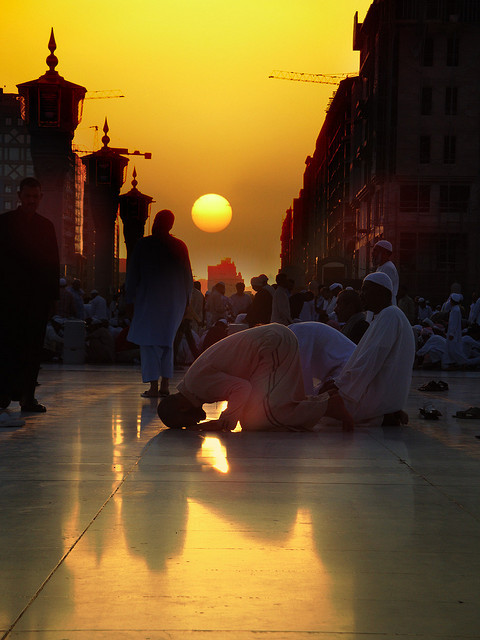
The least we can do, brothers and sisters, is the faraa'id (obligatory actions) such as salah five times a day, fasting in Ramadhan, and going for the Hajj. All of these require that we use our physical bodies. That is the least that we can do, the bare minimum. Of course, the more that one does, the better it is for him. Thus, this is second of the five matters, "your health before you illness."
- Take Advantage of Your Wealth Before Your Poverty
One day we might not have anything, and the next we might have much more than we need. One day, a person might have the best of jobs and the largest of salaries, yet, the next day, something happens and he does not have that job anymore and loses his source of income. So, the wise person uses his richness before he becomes poor. He invests for his future.
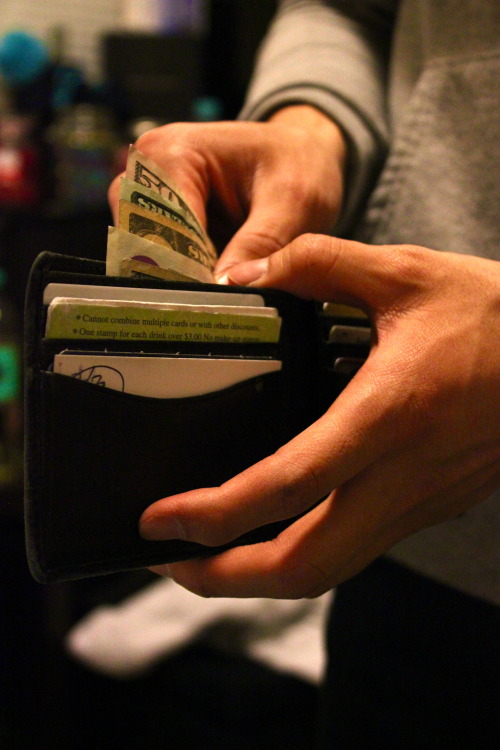
As for investments of this dunia, then the kafir and the Muslim are both the same; they both do that. Even the Prophet S.A.W. would store staple food items even up to a year. Sometimes he would store barley and grain for a whole year for his family. So this is obviously something halal as the Prophet S.A.W. himself did it, and we should do it too. We should make sure we have enough money for our family and our children and ourselves, so we are not poor and we are not beggars. There is no doubt that this is a part of our Syari'ah as well.
But while we are doing this, let us not forget that we also need to invest for the Akhirat. Should we not think about investing this money so we can pick it and pluck it in Hereafter when we need it far more than we need it in this world? We need to invest for the real future, our real life after our death.
The meaning of this hadith is that the Prophet S.A.W. is asking for example, does the father love the money of his son or does he love his own money? Of course, the father loves his own money. Likewise, every person will love his own money more than he loves the money of other people.
The Prophet S.A.W. once asked his companions, "Who among you loves his inheritors' money more than his own money?"
The meaning of this hadith is that the Prophet S.A.W. is asking for example, does the father love the money of his son or does he love his own money? Of course, the father loves his own money. Likewise, every person will love his own money more than he loves the money of other people.

The sahabah said, "Ya Rasulullah, all of us love our own money than we love the money of our inheritors. We all love our own money. We guard it and protect it more than the money of our inheritors." The the Prophet Muhammad S.A.W. said, "Verily, the money that you spend in charity is your money, and the money that you leave behind is the money of your inheritors."
Ponder over that hadith for a while, how true it is. As for the father who loves his own money than the money of his son, does he not realize that one day his son will take that every money of his and he will have nothing to do with it? All that is left of his money is what he spent during his life for the sake of Allah, if there was any such money. Any of it spent in charity for the sake of Allah, is money that will be yours permanently. The Arabic word for charity includes zakat, sadaqah, waqaf, and any type of monetary good that you did. Everything besides this will go into the hands of your inheritors.
Remember that feeding your family is an ibadah if you are doing it for the sake of Allah. If you are doing it for the sake of Allah, you will be rewarded. The Prophet S.A.W. said that, "A morsel of food, one morsel of food, one handful of food, If you put it in your wife's mouth, this will reward for you on the Day of Judgement." Now everybody, Muslim or non-Muslim, feeds his family. But will everybody be rewarded for that? No. Because only the one who does it remembering Allah, thinking about Allah, and doing if for sake of Allah will be rewarded.
Ask ourselves if the last time we went shopping, was Allah in our mind? Did we think of doing this for Allah? When we picked up the milk and the bread, was our heart thinking, "Oh Allah, I am buying this food through halal money, and this is halal food, because I want to feed my family and this is an obligation that You have put upon me, therefore, I am doing it for your sake." Who among us has this in our mind?
When we say, "that is spent for the sake of Allah." we are not just talking about money, zakat, sadaqah, and charity. Of course, giving in charity is the best thing you can do with your money. But do not forget that the majority of income that we spend, and in fact for the mu'min, all of income that he spends, can be for the sake of Allah as well. This means thinking of Allah, spending for the sake of Allah, and having the intention of pleasing Allah S.W.T. Thus, this is the third of five things; "your wealth before poverty"
- Take Advantage of Your Free Time Before You Become Busy
Remember the hadith of Prophet S.A.W. that we just quoted about the two blessings (health and free time) most people have been deceived by. In other words, they don't realize their blessings of health and free time. You may have to work eight hours a day, no problem. Allah S.W.T. has allowed this for you. He has obligated it upon you. When you come home, you have four or five hours, so spend them wisely for the sake of Allah.
Spending time wisely does not necessarily mean purely religious deeds. But spending your time wisely and even be something benefit in this world. Learn something that can benefit you in this world and that can benefit other people as well. Islam is a complete way of life, a complete code. Do not forget that all of the acts a mukmin does can be transformed into acts of worship if, and only if, he does them for the sake of Allah S.W.T.
Of course that there are religious deeds which are the best deeds to do. Every one of us should recite the Qur'an everyday, even if it's only for five or ten minutes. You should have some relationship with the Qur'an. Everyone of us should pray some extra prayers as well, a few sunnahs, the continual sunnahs that the Prophet S.A.W. used to pray. This is most important thing for us to do. But at the same time, do not forget that there can be many acts that can be rewarded if you change your niat and do them for the sake of Allah.
So, do not waste your time. The greatest waster of time is the television. You turn it on, and hour or two went by, and not only have you not gained anything for the akhirat, you have not gained anything for this world. You have literally killed, murdered your time, and done absolutely nothing with it. And realize that you are lucky if you don't come away from those two hours without any sins. How many are the sins that are in television, with music, and the women, and the other things. In my opinion, it is better for a mukmin not to even have this instrument in his house because of the evil that comes from it. Like Allah says about alcohol, the evil that comes from it is more than the good obtained from it.
When you have some free time, take advantage of it. The greatest thing that we can do in this free time is to worship Allah. And one of the greatest acts of worship is to seek knowledge. Take a book out to read, listen to some cassettes, or listen to some CD's. Do whatever you can do to increase your knowledge. Attend some classes or even visit one another for the sake of Allah S.W.T. Visit your Muslim brother with the proper Islamic etiquette and adab. This is an act you can do that will pass your time away, and be worthwhile. Thus, this is the fourth of five matters: "take advantage of your free time before you become busy."
The Prophet S.A.W. therefore reminded us, "Take advantage of your life before your death." This is the greatest of foresight. Hence the Prophet S.A.W. concluded the hadith with this phrase.
How are we going to use this life before death comes? As for the kafir, he will totally waste it because he will make this life as his goal. He will live only to appease and satisfy every his desire. Then on the Day of Judgement, he will beg Allah to send him back to this life. Allah describes this in the Quran :
When death comes to them, he will say, "O my Lord!"
All of sudden, when his Lord comes to him he remembers Allah. Whereas throughout all of the years that he lived, Allah was nowhere near him; Allah S.W.T. was the furthest thing from his death. On the Day of Judgement when he is resurrected, he will say:
Oh my Lord! Allow me to go back so that I may do good in the time that I had left.
Allah obviously will say, "Kalla"-no. You have only been allowed one life and you will not be able to go back and change that life. For every good you do you will be rewarded, and for every evil you do you will be punished.
Allah SWT also describes them in the Holy Quran as saying on the Day of Judgement:
Therefore, these the five that the Prophet Muhammad SAW told the man to do. This hadith deals with responsibility, wisdom, foresight, long-term planning, and good strategy. Every one of us has been blessed with these five blessings. There is no one among us who has not been blessed with these five things. So how do we utilize them? What do we utilize them for? Why do we utilize them?
The wise person is the one who strives to achieve the pleasure of Allah SWT and then expects the best from Allah. The wise one is the one who tries to arrive at the goal and then has a tawakal in Allah. Tawakal does not mean to sit back and say, "Oh, this will happen to me." Rather, you must strive for it. The fool is the one who follows his desires and them presumes that Allah SWT will reward him.
We ask that Allah SWT makes us among those who can seize these five things, who can take advantage of them before the five will come. These five matters will inevitably be taken away from us, and substituted by the others that the Prophet Muhammad SAW mentioned.
Wonderful sharing by Yasir Birjas. :)
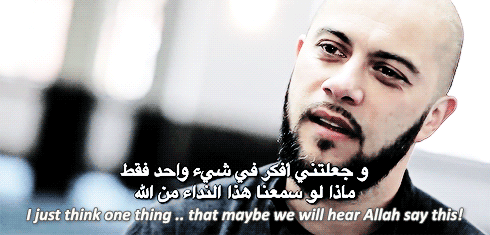
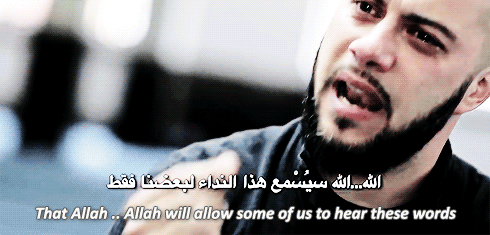
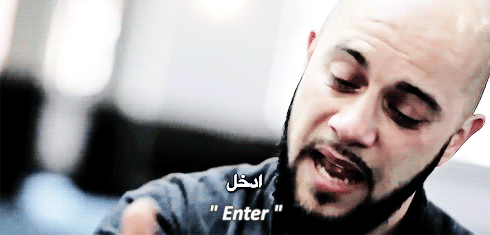
Spending time wisely does not necessarily mean purely religious deeds. But spending your time wisely and even be something benefit in this world. Learn something that can benefit you in this world and that can benefit other people as well. Islam is a complete way of life, a complete code. Do not forget that all of the acts a mukmin does can be transformed into acts of worship if, and only if, he does them for the sake of Allah S.W.T.
Of course that there are religious deeds which are the best deeds to do. Every one of us should recite the Qur'an everyday, even if it's only for five or ten minutes. You should have some relationship with the Qur'an. Everyone of us should pray some extra prayers as well, a few sunnahs, the continual sunnahs that the Prophet S.A.W. used to pray. This is most important thing for us to do. But at the same time, do not forget that there can be many acts that can be rewarded if you change your niat and do them for the sake of Allah.
So, do not waste your time. The greatest waster of time is the television. You turn it on, and hour or two went by, and not only have you not gained anything for the akhirat, you have not gained anything for this world. You have literally killed, murdered your time, and done absolutely nothing with it. And realize that you are lucky if you don't come away from those two hours without any sins. How many are the sins that are in television, with music, and the women, and the other things. In my opinion, it is better for a mukmin not to even have this instrument in his house because of the evil that comes from it. Like Allah says about alcohol, the evil that comes from it is more than the good obtained from it.
- Take Advantage of Your Life Before Your Death
This above phrase summarizes it all. Everyone of us has a life. That is why we are here right now. Everyone of us without a doubt will die.
Allah says :
You are going to die and they too are going to die.And it is as Allah said, the Prophet S.A.W. passed away and so did the people that opposed him and believed in him. They all have passed away. And the turn came for those after them, and then those after them, until it is our turn.
The Prophet S.A.W. therefore reminded us, "Take advantage of your life before your death." This is the greatest of foresight. Hence the Prophet S.A.W. concluded the hadith with this phrase.
How are we going to use this life before death comes? As for the kafir, he will totally waste it because he will make this life as his goal. He will live only to appease and satisfy every his desire. Then on the Day of Judgement, he will beg Allah to send him back to this life. Allah describes this in the Quran :
When death comes to them, he will say, "O my Lord!"
All of sudden, when his Lord comes to him he remembers Allah. Whereas throughout all of the years that he lived, Allah was nowhere near him; Allah S.W.T. was the furthest thing from his death. On the Day of Judgement when he is resurrected, he will say:
Oh my Lord! Allow me to go back so that I may do good in the time that I had left.
Allah obviously will say, "Kalla"-no. You have only been allowed one life and you will not be able to go back and change that life. For every good you do you will be rewarded, and for every evil you do you will be punished.
Allah SWT also describes them in the Holy Quran as saying on the Day of Judgement:
O our lord, we have seen and we have heard. Let us go back to do good deeds; we are now believers.They claim to believe in Allah and the Day of Judgement but Allah will not allow this to happen because everyone has only one life. That is what Allah has given and this is what we must make the best of in this world so that we are compensated accordingly in the Hereafter.
Therefore, these the five that the Prophet Muhammad SAW told the man to do. This hadith deals with responsibility, wisdom, foresight, long-term planning, and good strategy. Every one of us has been blessed with these five blessings. There is no one among us who has not been blessed with these five things. So how do we utilize them? What do we utilize them for? Why do we utilize them?
The wise person is the one who strives to achieve the pleasure of Allah SWT and then expects the best from Allah. The wise one is the one who tries to arrive at the goal and then has a tawakal in Allah. Tawakal does not mean to sit back and say, "Oh, this will happen to me." Rather, you must strive for it. The fool is the one who follows his desires and them presumes that Allah SWT will reward him.
We ask that Allah SWT makes us among those who can seize these five things, who can take advantage of them before the five will come. These five matters will inevitably be taken away from us, and substituted by the others that the Prophet Muhammad SAW mentioned.
Wonderful sharing by Yasir Birjas. :)











